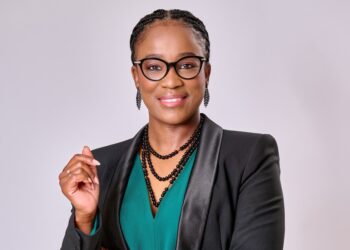
By Dylan Mukoroli
The Cattle Country as its affectionately known, stands at a crossroads of a beautiful story to tell with regards to economic diversification or continuing to tell its current story of a severe drought and lack of economic activities to spearhead growth.
The small impoverished town of Leonardville in the Aminuis constituency is now at the center stage of international lobbyist-based attention as to whether the mining method is safe to not contaminate the aquifer.
There is indeed much to unpack from both, but the purpose of this opinion piece is to add support to Headspring`s mining operation and make a case that this mine has the opportunity to create jobs, increase the standard of living, and tenuously diversify our region’s economic output.
The two industries can co-exist. Headspring has already done a great deal in the community and the expectations are expected to triple once the mine passes the exploration phase.Â
Headsprings Investments, which is Uranium One`s local company spearheading the initiative has been on a mineral resources awareness campaign to inform the community about the mining processes and so forth. Having recently had a community mobilization in Gobabis and in Leonardville, nothing was left to chance as communities probed this mining method and looked at all avenues including the possible contamination fears.
In response to what was quoted by UN Special Rapporteur Pedro Arrojo-Agudo in the villager calling the mining method `ecocide`, does not take to reference the current exploration process that needs to be completed that will guide any mitigation plan with regards to contamination.
Already throwing cold water on the method without important steps having been completed and with pending completion of studies by UNESCO and the International Atomic body grossly disadvantages the benefits this mine could have.
We must let the relevant studies continue because this is where we will get more pivotal information about how the mine will operate. The resource is in our water, a resource that can uplift the standards of livings for our people.
I must take the time to call out the down-looking perspective currently being lobbied against it being ` The choice between economic development for a relatively small community vs potential contamination`; unfortunately looks down upon the economic hardships of the people of Leonardville.
A point in case, there is currently minimal to no economic activity that can better the livelihoods of the community of Leonardville who ought to be the primary beneficiaries. The biggest current activity is commercial farming and hospitality upwards into the big game farms and commercial areas.
No alternative has the potential of the same impact as the mine. Our people remain generational farm workers and their children also proned to follow suit if something doesn’t drastically change.
In making a case for the In-Situ Recovery (ISR) mining method in Leman terms, also referred to as In-Situ Leaching (ISL), is a highly developed mining technique which uses a system of patterned boreholes, in which uranium is mobilized from the permeable sandstone formations (aquifer) using either industrial oxygen or very low concentration of acid or alkaline solution.
A key advantage of this mining technique is the large reduction in radiation exposure levels normally associated with traditional uranium mining. ISR is also more environmentally friendly in comparison to conventional open-pit and underground mining due to minimum impact on natural landscape.Â
The above is a lemans understanding of the mining method as too much biased negativity gets plagued to it.
We have an opportunity as a region to change things for the better. We have seen how mines have transformed local economic development within towns, settlements, and growth points.
We need, without bias or compromise, allow the exploration to continue and allow Omaheke to add its voice to this emerging mining technique and further position ourselves as a region to make the most out of the existence of this mineral.Â
Omaheke is nowhere to be found in the national conversations of green hydrogen, nowhere in mining, nowhere in oil and gas, zero balance by diamonds. ` dit gaan broekskeur` if one was to term it. The increased standard of living for the people of Leonardville be 500 inhabitants or less, depends on the successful exploration of this mineral.
In conclusion, the pursuit of accountable mining exploration is not just an economic opportunity—it is a path to transformation for Omaheke`s communities destined for transformation.
As we navigate the complexities of our ever-evolving world with regards to mining, we must look beyond immediate differences and embrace the long-term promise of diversification, job creation, sustainable development practise and protection of natural water resource. By responsibly mining the resources at our disposal, we can offer new hope, new careers, and a future where economic stability no longer feels like a privilege.
Mining exploration is not just about extracting minerals; it’s about unlocking the potential of a community that ought to be the primary beneficiaries of this resource. It is about providing families with the tools and capacity to build a better life, and giving the next generation the chance to build better and resilient communities. It is about creating a legacy—one where the fruits of the earth are used to enrich lives, strengthen the local economic opportunities presented by the mine, and foster an environment where opportunity can grow, not just for today, but for decades to come.
Ultimately, it’s about restoring dignity, meaningful empowerment, and legitimate hope—a vision of what we can achieve if this mine materializes, act responsibly, and invest in the future of our people of Omaheke.
This is the most meaningful promise of mining exploration. Let’s embrace it, and together, build a resilient Omaheke.
*Dylan Mukoroli is passionate about Sustainable Community Development & Development Finance.











